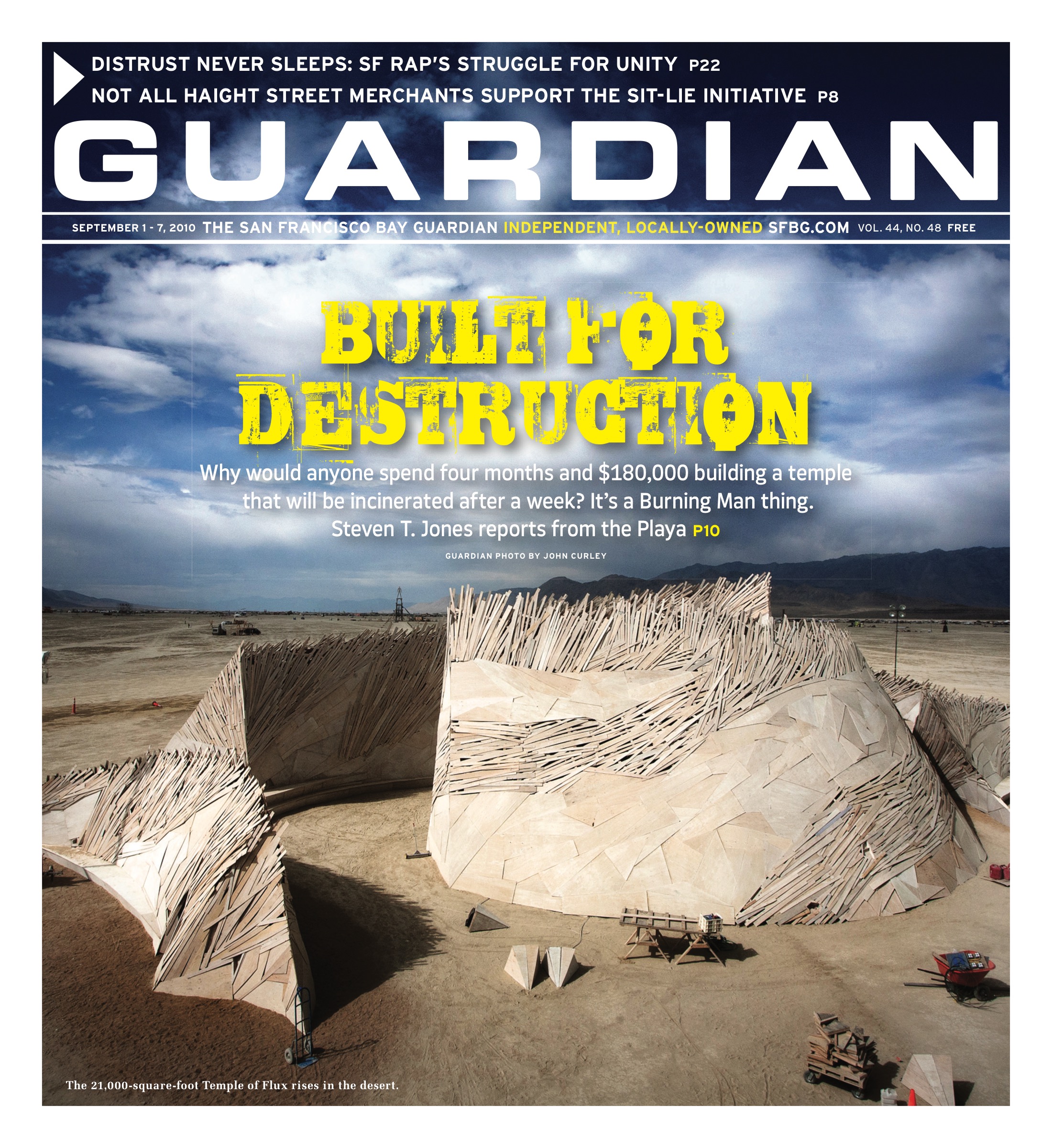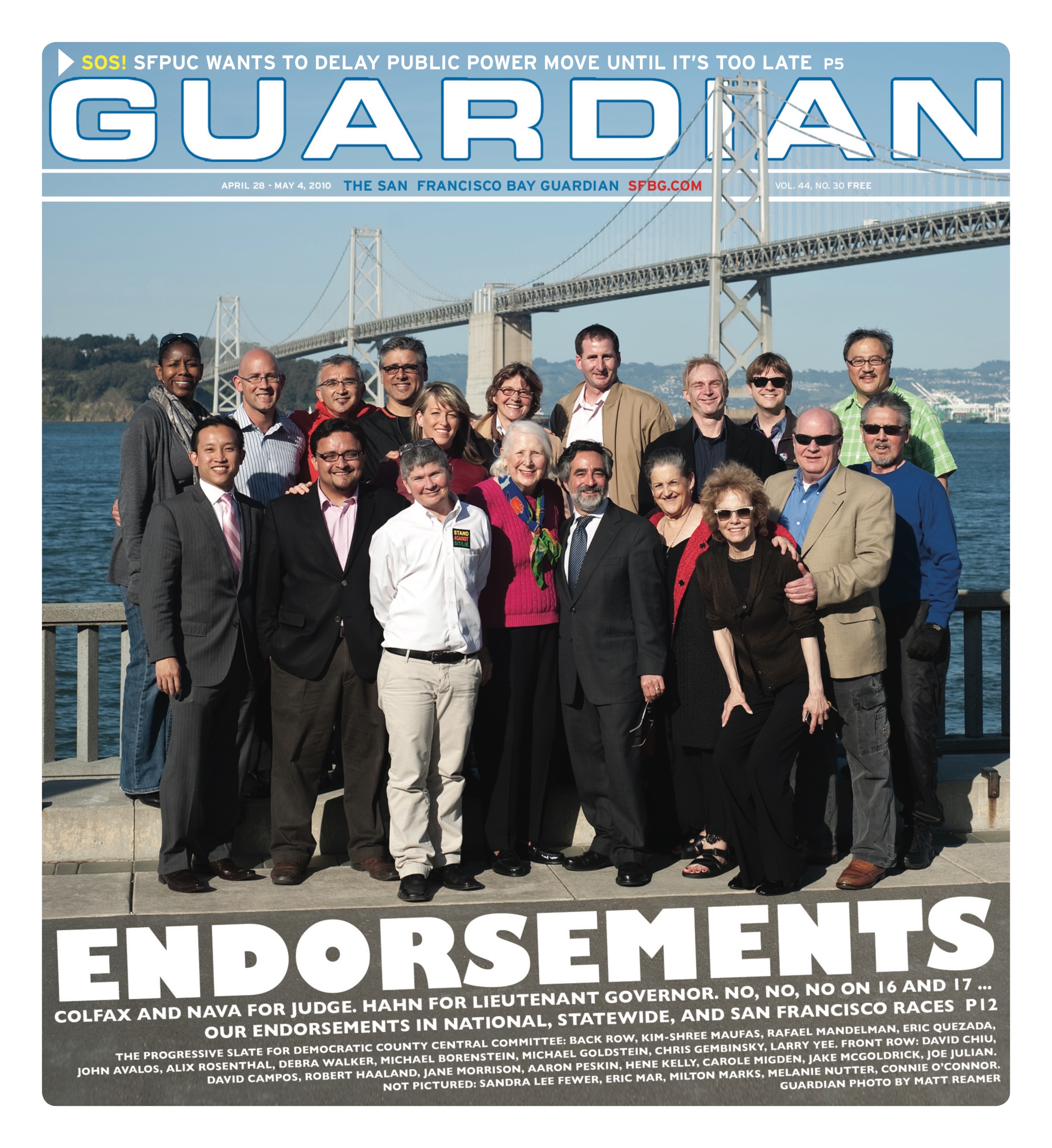Del Martin and Phyllis Lyon
 Del Martin, left, and Phyllis Lyon
Del Martin, left, and Phyllis Lyon
Del Martin and Phyllis Lyon have lived active lives — although “activist” would be the better word. One, the other, or both have been founding members of the Daughters of Bilitis, the Alice B. Toklas Democratic Club, the Council on Religion and the Homosexual, and Old Lesbians Organizing for Change. Martin, 87, was the first lesbian elected to a position in the National Organization for Women, where she was also the first to assert that lesbian issues are feminist issues. Lyon, 83, edited the Ladder, the first magazine in the United States devoted to lesbian issues. And together, it seems, there’s little they haven’t done, from coauthoring books to becoming the first gay couple in the nation to legally marry on Feb. 12, 2004, almost 50 years to the day they first became a couple.
Deemed void later that year, their marriage was reconstituted this June when the California Supreme Court ruled that same-sex marriage is, in fact, legal. Once again, Martin and Lyon were the first in line to tie the knot.
But gay marriage wasn’t the right they were fighting for when their relationship began back in 1954. “We had other, bigger issues. We didn’t have anything in the ’50s and ’60s,” Lyon recalls. “We were worried about getting a law passed to disallow people from getting fired or thrown out of their homes for being gay.”
Even something as simple as having a safe space to congregate was elusive. Before the mid-1950s, the only organizations that dealt with gay issues were run by and focused on men. So Martin and Lyon, along with a few other lesbian couples, founded the Daughters of Bilitis in 1955. “We would meet in homes, dance, and have drinks and so on, and not be subject to police raids, which were happening then in the gay and lesbian bars,” Lyon said. Those informal get-togethers eventually became the first lesbian organization with chapters nationwide.
They say their activism isn’t something that was sparked by their gender and sexuality, but came from being raised in politically conscious homes — Lyon in Tulsa, Okla., and Martin in San Francisco. When they met, working at the same company in Seattle, “both of us were already politically involved,” Lyon says.
“Really, ever since we were kids,” Martin adds. “You followed elections. You followed things like that. We wore buttons for Roosevelt. We couldn’t send money because we didn’t have any.”
“And then when we both moved in together, in San Francisco, the first thing we did was get involved with Adlai Stevenson,” Lyon says. They quickly got to know the major Democratic movers and shakers in the city, like the Burton family and later Nancy Pelosi, whom they would eventually turn to when there were gay issues that needed a push.
“We didn’t come out to everybody, but we came out to Nancy and the Burtons,” Lyon says.
These days age has tamped down the physically active part of their political activism, although they still donate money and were ardent Hillary Clinton supporters during this year’s Democratic primary race. They’re now backing Barack Obama over John McCain, though Martin expressed reservations. “I’m waiting to see how he handles the question about women and women’s rights. I’m not satisfied yet.”
Amanda Witherell
Local hero
Alicia Schwartz
 Alicia Schwartz
Alicia Schwartz
Whether she’s demanding sit-down time with the mayor to discuss asbestos dust at Hunters Point Shipyard, offering to debate former 49ers president Carmen Policy over the need to develop 50 percent affordable housing in the Bayview, or doing the cha-cha slide on Third Street to publicize the grassroots Proposition F campaign, which fought the Lennar-financed multimillion-dollar Proposition G on the June ballot, Alicia Schwartz always bubbles with fierce enthusiasm.
“I absolutely love my job,” says Schwartz, who has been a community organizer with POWER (People Organized to Win Employment Rights) for four years.
Born and raised in Marin County, Schwartz graduated from the University of California, San Diego, with a degree in sociology and anthropology before returning to the Bay Area, where she is enrolled in San Francisco State University’s ethnic studies graduate program and works for the San Francisco–based POWER.
“It’s an amazing organization full of amazing people, united for a common vision, which is ending oppression and poverty for all,” says Schwartz. “In cities, the priorities are skewed to benefit folks who are wealthier and have more benefits. But the folks who keep the city running are not recognized or are suppressed.”
Prop. F wasn’t Schwartz’s first campaign experience. She had previously organized for reproductive justice, for access to health care and sexual-health education, and against the prison-industrial complex.
But it was the most inspirational campaign she’s seen so far.
“I saw the Bayview transformed,” Schwartz explains. “I saw people who’d lost faith in politicians come to the forefront and fight for the future. And I saw people across the city rallying in support, too.”
Schwartz acknowledges that Prop. F didn’t win numerically.
“But practically and morally, and in terms of a broader vision, Prop. F advanced the conversation about the future of San Francisco, about its working-class and black future,” Schwartz says. “Clearly, that fight isn’t over. It’s just beginning.”
Schwartz says she believes that the other success of Prop. F is that it raised the question of who runs our cities.
“And I think it was a huge victory, even being able to accomplish running a grassroots campaign, with no money whatsoever and where we had to up the ante, in terms of getting to know some of the political establishment.”
Most of all, Schwartz says she appreciated being able to work with people who hadn’t been part of POWER.
“And I appreciated being able to advance a set of demands that a broad range of people could support, while keeping the Bayview and its residents at the forefront,” she says.
While that particular campaign may be over, the battle for Bayview–Hunters Point continues on many fronts, says Schwartz.
“Are we going to allow it to be run by developers who don’t have our best interests at heart and who fool us with payouts and false promises?” she asks. “Are we going to allow San Francisco to become a place where people can’t afford to live, but surely have to come to work?”
Amanda Witherell
Local hero
James Carey, Daniel Harder, and Jeff Rosendale
 From left, Daniel Harder, James Carey, and
From left, Daniel Harder, James Carey, and
Jeff Rosendale
It would be unfair to give any one person credit for stopping the state’s foolish plan to aerially spray synthetic pheromones to eradicate the light brown apple moth (LBAM). Thousands were involved in that struggle.
But there are at least three individuals we can think of who successfully fought the state with science, a tool that too often is used to dupe, not enlighten, the public.
They are James Carey, a University of California, Davis, entomology professor; Daniel Harder, botanist and executive director of the UC Santa Cruz Arboretum; and Jeff Rosendale, a grower and horticulturalist who runs a nursery in Soquel.
Together and separately, this trio used experience, field observation, and fact-finding tours to make the case that the California Department of Food and Agriculture (CDFA) would court disaster, in terms of lost time, money, and public goodwill, if it went ahead with the spraying.
And they did so at a time when UC, as an institution, remained silent on the matter.
“I felt like I needed to do this. No one was stepping up from a position of entomological knowledge,” says Carey, whose prior work on an advisory panel working with state agencies fighting the Mediterranean fruit fly between 1987 and 1994 led him to speak out when the state sprayed Monterey and Santa Cruz counties last fall.
Carey says the signatures of two UC Davis colleagues, Frank Zalom and Bruce Hammock, on a May 28 letter to the US Department of Agriculture also helped.
“All of us are senior and highly credentialed scientists,” Carey notes, “so our letter was taken really seriously by the agriculture industry.”
Rosendale and Harder had taken a fact-finding tour last December to New Zealand, which has harbored this leaf-rolling Australian bug for more than a century, to find out firsthand just how big of a problem the moth really is.
“We wanted to get the best information about how they were dealing with it, and what it was or wasn’t doing,” Rosendale recalls. What he and Harder discovered was that New Zealand had tried using organophosphates, toxic pesticides, against the moths — but the chemicals killed all insects in the orchards, including beneficial ones that stopped parasites.
“When they stopped using organophosphates, the food chain took care of the LBAM,” Rosendale says.
Like Carey and Rosendale, Harder believes that the state’s recently announced plan to use sterile moths instead of pesticides is a lost cause. He says it’s impossible to eradicate LBAM at this point because the pest is already too widespread.
“It’s not going to work, and it’s not necessary,” Harder says.
And now, Glen Chase, a professor of systems management specializing in environmental economics and statistics, says that the CDFA is falsely claiming that the moth is an emergency so it can steal hundreds of millions from taxpayer emergency funds.
“The widespread population of the moth in California and the specific population densities of the moth, when analyzed with real science and statistics, dictate that the moth has been in California for at least 30 to 50 years,” states Chase in a July 15 press release.
The state has put spraying urban areas on hold, but the battle isn’t over — and the scientists who have gone out on a limb to inform the public are still on the case.
Sarah Phelan
Local hero
Queer Youth Organizing Project
 From left, Fred Sherburn-Zimmer,
From left, Fred Sherburn-Zimmer,
Josue Arguelles, Jane Martin, Vivian Crocket,
Justin Zarrett Blake,
Joseles de la Cruz, and Abel-Diego Romero
The queer-labor alliance Pride at Work, a constituent group of the AFL-CIO, added a youth brigade last year, and it’s been doing some of the most inspired organizing and advocacy in San Francisco. The Queer Youth Organizing Project can marshal dozens of teen and twentysomething activists with a strong sense of both style and social justice for its events and causes.
Founded in March 2007, QYOP has already made a big impact on San Francisco’s political scene, reviving the edgy and indignant struggle for liberation that had all but died out in the aging queer movement. Pride at Work has also been rejuvenated and challenged by QYOP’s youthful enthusiasm.
“It really is building the next generation of leaders in the queer community, and man, are they kick-ass,” says Robert Haaland, a key figure in both Service Employees International Union Local 1021 and Pride at Work. “Pride at Work is now a whole different organization.”
QYOP turned out hundreds of tenants for recent midday City Hall hearings looking at the hardball tactics of CitiApartments managers, an impressive feat that helped city officials and the general public gain a better understanding of the controversial landlord.
“They have a strong focus on tenant issues and have done good work on Prop. 98 and some tenant harassment legislation we’ve been working on,” says Ted Gullickson, director of the San Francisco Tenants Union. “They really round out the coalition between tenants and labor. They do awesome work.”
In addition to the energy and numbers QYOP brought to the campaign against the anti–rent control measure Prop. 98, the group joined the No Borders encampment at the Mexican border in support of immigrant rights and turned a protest against the Human Rights Campaign (which angered some local queers for supporting a workplace rights bill that excluded transgenders) into a combination of pointed protest and fun party outside the targeted group’s annual gala dinner.
“It’s probably some of the most interesting community organizing I’ve seen in San Francisco,” Haaland says. “It’s really made a difference in our capacity to do the work.”
As an added bonus in this essentially one-party town, QYOP is reaching young activists using mechanisms outside the traditional Democratic Party structures, an important feature for radicalized young people who are wary of partisan paradigms. And its members perhaps bring an even stronger political perspective than their Party brethren, circulating reading lists of inspiring thinkers to hone their messages.
Haaland says QYOP has reenergized him as an activist and organizer: “They’re teaching me, and it’s grounding me as an activist in a way I haven’t been for a long time.”
Steven T. Jones








